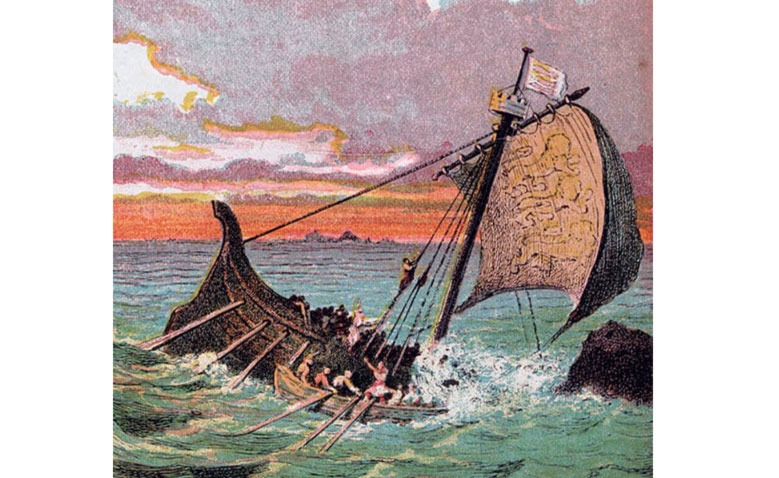Throughout history, humanity has witnessed tragic events that resulted in mass killings, leaving indelible marks on cultures, societies, and the very fabric of civilization. Understanding these events from a Christian perspective invites not only a reflection on the consequences of humanity’s darker impulses but also an exploration of the redemptive possibilities that arise from acknowledging and addressing such profound tragedies. This article delves into some of the most significant mass killings throughout history, analyzing them in the context of faith, morality, and the potential for healing.
One of the earliest recorded mass killings occurred during the reign of King Herod, as described in the Gospel of Matthew. The massacre of the innocents, wherein Herod ordered the execution of all male infants in Bethlehem following the birth of Jesus, exemplifies the lengths to which individuals will go to preserve power and quash perceived threats. This horrific act reminds Christians of the vulnerability of the innocent and the steadfast love that Christ represents—a love that ultimately triumphed over such ruthless despair. Reflecting on this event, believers are called to respond with compassion for the marginalized and oppressed in today’s world.
Moving through the annals of history, the Crusades stand out as another pivotal period characterized by mass killings, justified under the guise of religious fervor. From the first crusade in 1096 to the last in the 13th century, thousands lost their lives. While some argue these campaigns were propelled by a desire to reclaim sacred lands, many innocent lives were irrevocably altered or extinguished. The aftermath of the Crusades continues to influence Christian-Muslim relations, reminding believers of the necessity for dialogue, understanding, and forgiveness. The paradox of faith being marred by violence necessitates a reflective stance within the Christian community, urging a commitment to peace and reconciliation in the face of historical grievances.
In the modern era, the Holocaust represents one of the most harrowing events in human history—a systematic extermination of six million Jews during World War II, orchestrated by the Nazi regime. The horrors inflicted during this time serve as a stark reminder of humanity’s capacity for evil, with the Church grappling with its response to such atrocities. Christian teachings advocate for the sanctity of life and the imperative of loving one’s neighbor, thus prompting believers to reflect on the Church’s role during this dark time. The post-Holocaust world has transformed Jewish-Christian relations, leading to an imperative for educational initiatives that foster interfaith dialogue and mutual understanding.
The Rwandan Genocide in 1994 stands as another profound reminder of how quickly society can devolve into chaos and hatred. Over a span of approximately 100 days, an estimated 800,000 Tutsis and moderate Hutus were slaughtered. This tragedy exposed deep-rooted ethnic tensions and is a powerful illustration of the dangers that accompany unchecked hatred. In the aftermath, Christian organizations played significant roles in both healing and reconciliation processes, embodying the teachings of Christ in their efforts to restore hope and promote forgiveness in a society fractured by violence. This highlights the potential for faith communities to spearhead initiatives that address the aftermath of mass killings, focusing on peacebuilding and the restoration of relationships.
The notion of collective forgiveness emerges as a salient theme when considering these events. In Matthew 6:14-15, the Gospel emphasizes the paramount importance of forgiving others, echoing the message that those who seek forgiveness must also extend it. Encouraging forgiveness in the aftermath of horrific violence is no small feat, as it demands vulnerability and strength from those who have suffered immense loss. Yet, many survivors from various genocides have shown remarkable strength in pursuing this path, often supported by the Christian community, which emphasizes reconciliation as a divine imperative. This necessitates a broader understanding of justice, which, in many cases, transcends mere retribution, advocating instead for restorative justice that encompasses healing and reconciliation.
The historic atrocities examined are not merely relics of the past; they hold lessons that resonate in contemporary settings. As society grapples with the consequences of violence and hatred, Christians are called to reflect on their own roles in perpetuating or combating injustices. The dialogue of faith must include a commitment to social justice, advocating for the oppressed, and building inclusive communities that embody the principles of Christ’s teachings. Whether it is through active participation in systemic change or grassroots community support, the Christian mandate to love one’s neighbor becomes the foundation for confronting current global injustices.
Ultimately, the exploration of mass killings throughout history urges believers to adopt a posture of humility. It necessitates acknowledgment of the failures of human institutions, including the Church, while simultaneously calling for a robust commitment to upholding the dignity of all individuals. By fostering environments of compassion, understanding, and forgiveness, Christians can contribute to a narrative of hope and healing that counters the inevitable re-emergence of enmity and violence in society.
In conclusion, understanding the biggest mass killings in history through a Christian lens not only provides a sobering insight into humanity’s potential for cruelty but also highlights the transformative power of faith. Such reflections compel believers to confront the lessons of history and advocate for a world characterized by grace, justice, and the unwavering commitment to love one another as Christ loved us.



